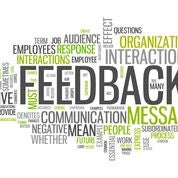Here’s Why You Need to Reply to Negative Reviews
By: Rumzz Bajwa

No one likes a negative review. It’s all too tempting to sweep them under the rug, or ignore them altogether by focusing on “bigger and better things.” But I can tell you, avoiding some unpleasantness isn’t the answer. Especially when it comes to protecting your business’s reputation, and how your customers—and potential customers—view you.
Replying to negative reviews online is just one of the many examples of how digital marketing and good public relations go hand-in-hand. So first, let’s look at some of the main reasons why it’s important, and even crucial to reply to negative reviews for your ultimate success.
Reasons to Hit that “Reply” Button
- Keeping your Reputation Solid with Brand Management
Establishing and increasing your brand awareness online means incorporating PR into your marketing strategy. For one thing, you can manage your brand’s reputation online by making your business accessible on different social media platforms and utilizing social media as a form of customer service. Responding to negative comments is just another part of crisis prevention and problem solving for the future.
- It’s Not Just About Google Reviews
Anywhere you have a business listing or platform for connecting directly with your customers is fair game for reviews and comments, not just your Google My Business listing (although that’s very important). I’m talking about:
- Business listings from:
- Yelp
- Safari
- Bing
- Online forums and directories – like Trip Advisor and Reddit
- (Yes.) Social media
- Live chat
- Message boards on your website
- Blog comments
That may seem like a lot to keep track of, and that’s because it is. But I’ll talk more later in this article about why you really should go the extra mile and put the work in.
- Focus on Being Transparent with Your Customers
Your social approach within a marketing strategy is a way that you’re able to communicate directly with your business’s target audience. According to key findings by SproutSocial, 85% of people will give a second chance to a business after a negative experience if they have a history of being transparent.
By answering your reviewers, both their questions and complaints, you can show the world that you run your business with integrity. You really do care about your customers, and you’re willing to hear them out!
- Transparency Leads to Authenticity
Here’s another one of those marketing buzzwords: authenticity. Being transparent with your customers about their experience leads to creating a reputation for your brand that is authentic.
This also lends toward the current shift of creating “real” human connection in your marketing approach. The tactic borrows from journalistic narrative writing – why?
Because people trust true stories and humans, not gimmicks and robots. People trust what feels real and alive in your responses to their pain points.
With that said, here are some guidelines when it comes to actually replying to your reviewers.
 Tips for Replying Effectively to Negative Feedback
Tips for Replying Effectively to Negative Feedback
The Issue of Canned Responses
Now, canned responses can be very helpful in making sure your team can be efficient and swift when responding to reviews and comments. But that’s exactly what they are: canned responses. Pre-made and perfunctory, they get the job done. If you’re after quality customer care, you want to dig a bit deeper.
Use canned responses when necessary, but not when something more personalized is more appropriate. For example, an extremely negative review is not the time for a canned response. In these instances, “We are working to resolve the issue” just isn’t enough.
This also goes for:
- Complicated questions
- If your services actually fell short
- If further investigation of their complaint is needed
Avoid Talking Down to the Reviewer
No matter how simple or small the issue seems to you, try not to talk down to your customers. You’ll be ensuring that they really won’t come back. Even if you can’t fulfill their request, do your best to address the problem. If not, you could be pushing a customer towards a competitor. Always stay professional in your responses, but also sincere. (This goes back to that point about authenticity too.)
When You Get Negative Criticism, Take it Seriously
Even particularly scathing reviews can offer insights. Are there possibly weak links in your system? Look for possible patterns in negative comments. Is there a trend happening in your customer feedback?
This may be a sign that there is an area of your business that could use some improvement, and identifying those problem areas is the entire goal of customer feedback in the first place. Take these things seriously by acknowledging when a complaint may be valid, and be honest about this when you create your response.
Own Up to Any Mistakes
This goes right along with taking negative criticism seriously. When genuine mistakes are made, it can be best just to come clean when replying to a negative review. Sprout Social also found that, 89% of people will forgive a business if it “admits to a mistake, and is transparent about the steps it will take to solve the issue.”
Simply apologizing for a customer’s bad experience can go a long way in making them feel relieved about the situation. Even if a refund can’t be supplied, a product can’t be replaced, or the problem can’t be immediately rectified, find creative ways to make the customer feel that their business is appreciated, and the issue is being handled.
Don’t Argue Online for All the World to See
When you argue with customers online through their reviews that are posted, you’re immortalizing that published conversation forever. Other customers (and potential customers) who read reviews will take this as a sign that you don’t care about their experience.
Likewise, burying bad reviews and messy exchanges with fake positive reviews is probably more work than you realize. And if they sound fake, it only hurts your credibility.
Make the Time and Effort
This all sounds very time consuming, laborious even. The short answer?
It is. But look at what you get in return. You will have a customer base that respects you, will continue with your services, and can even bolster your brand through social media engagement and other sharable content.
Gaining customer insights is not just about collecting data. It’s about actively connecting with your consumer base; with the people who are making your business possible. Hard work pays dividends, and in this way, you can make lasting relationships that are both meaningful and rewarding for your brand.
Examples for Replying to Negative Reviews
I’ll just give you an example of how not to handle negative reviews, and one example of how you could make it better.
Example Review
“The owner that met with me sold me a bill of goods and never followed through with 90% of what I was promised. Their company is a scam and when I told them I was leaving they charged me for another month and never reimbursed me for it. This has been very disappointing since this company was recommended to me!”
How NOT to reply:
“You were recommended to us because we are the best at what we do. It seems that you didn’t read our terms. They clearly specify the billing schedule and when it was possible for you to cancel. We can’t be held responsible for your miscommunication with us, but we can assure you that your service needs were met at the time. Have a good day, and we wish you luck in future endeavors.”
Why is this considered a less than ideal response? To start with, it reads almost like a firing notice from an employer. This response is defensive, as well as passive aggressive when it doesn’t need to be.
Try this instead:
“Hi Chris, we’re sorry that you had such a negative experience. Please give us a call at our office so we can try to see what went wrong with the goods and services you purchased with us. We really want to make this right for you, and we thank you for bringing this to our attention.”
This response acknowledges there might have been a miscommunication between the business and the customer, while not being overly apologetic. The response also doesn’t guarantee a refund or promise anything else at this time, but encourages the customer to reach out to the business. Once the customer makes that initial step, they can communicate further and try to understand what went wrong.
Why Reply to Negative Reviews – In a Nutshell
No matter how many angles you look at it, criticism is as constructive as you allow it to be. The truth is, negative reviews are powerful. With the influence of social media and other digital portals, they can sometimes make or break your business and future opportunities. Keeping track of your reputation online is one of the reasons why digital marketing and public relations exist.
The best thing you can do is stay on top of any feedback you receive with a customer service-oriented team that supports your vision, and supports you.
3298 Views













